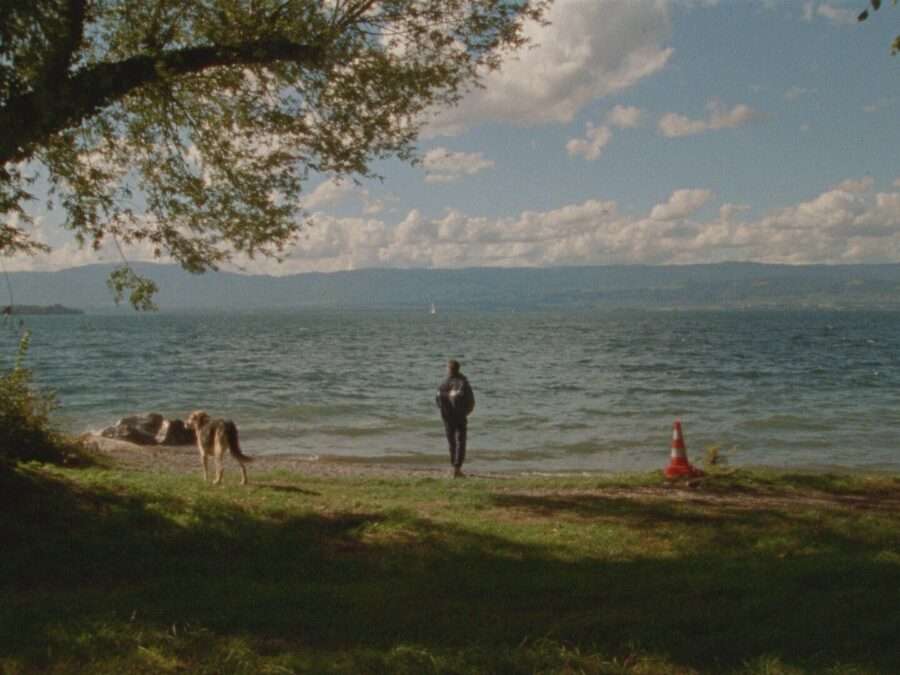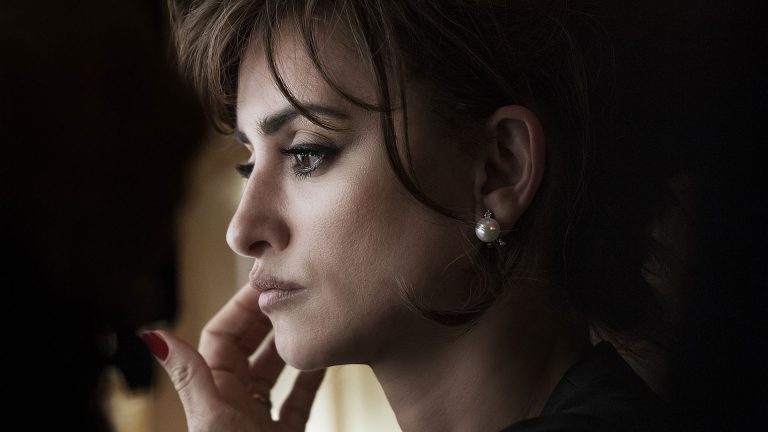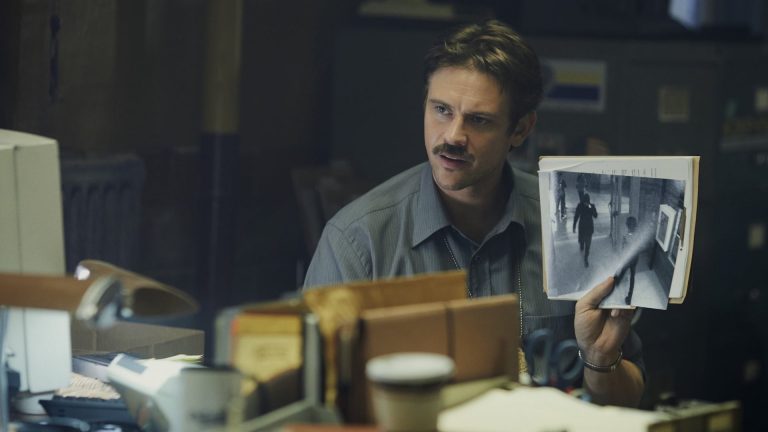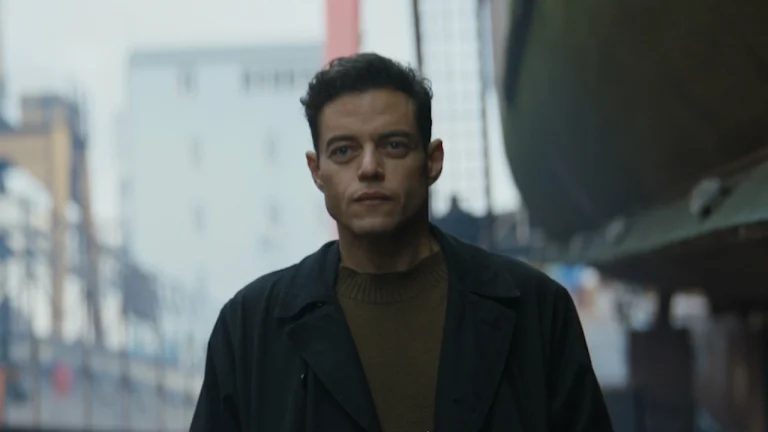Manon Coubia’s short film, “Full Night,” circles a sudden excavation of family history. Louison arrives at her family’s house to spend her holidays. She had conceived it as a restful break, a quiet, uneventful vacation. Relaxing and almost falling off into sleep, she is abruptly interrupted by the police, who inform her they are cordoning off the lake that surrounds the house. They ask her if she has heard anything from her grandmother about the letters they had been sending her, but for which they didn’t receive any reply. She is entirely oblivious. The police intimates about possible weapons submerged in the lake which they seek to dig out.
The weapons date from the Second World War years when they were diverted by her grandmother and other groups for the benefit of the communist resistance. A richly storied past bubbles to the fore in “Full Night,” as it focalizes the hidden, nevertheless strong role women played during the war. Banding together, they passed along correspondences among comrades, slipped into their babies’ prams, buns, and the markers of womanhood/motherhood that wouldn’t attract suspicion. There’s quite a bit of verbosity in the relaying of information that expands Louison’s perspective on her grandmother, but “Full Night” incorporates a stunning, atmospherically surreal phantasm of a nocturnal sequence that unfurls with the air of a mysterious reverie.
Ebba Gustafsson’s “Constructing an Island” is also overlaid with the past. Ebba hopes for a scene from her childhood memory to be a sort of reprieve. She thinks it can offer her calm and ease her anxiety. Perhaps her faith in its revitalizing potential is misplaced, but she is insistent on forging a proper affective link with fantasized images drawn from memory that comforted her as a kid. Of course, the projections of a child, eager for some sort of dreamt refuge, can turn out to be vastly different from what is actually the reality. In the gulf between the two, there is an entire journey of maturity, a pained but vital growth that learns to wean away the illusions and arrives at a greater measure of truth and reconciliation. It may not be the perfect recourse, but the quest is flecked with its own share of happiness.

Ebba, as a kid, had listened to stories of a remote island in northern Finland where her mother spent summers with Mommo, her great-grandmother. The island gained an idyllic status in her childhood memory, lodging itself as a source of personal emotional transport. She takes her sister with her to visit the island. We don’t know much about what prompted her to seek the place out apart from a jolt of anxiety, which Ebba is convinced can be allayed by the visit. However, inevitably there is a marked difference between her imagination and the present status of the island as well as the house her mother and Mommo stayed in.
What she believed to be her safe space feels oddly discordant in its actuality. Recollection and facts don’t tally up. When she confides in Mommo, she is encouraged to build the house herself, just as she had envisaged. Evoking from memory, Ebba puts together a dainty semblance of it with colorfully popping props. The window peeks out at the sea projected on a screen. Through an immaculate artifice, “Constructing an Island” slowly unravels the ‘culture of silence’ at the heart of Ebba’s family.
It is full of dark edges, which both her mother and Mommo have tried to repress and tuck away. Difficult, hard truths must be addressed and deferred conversations held for the entire family to heal and move forward. “Constructing an Island” is packed with subtle, bracing interrogation and functions as an economical yet expansive investigation of the ends of memory.



![Feast [2021] ‘MUBI’ Review: An insightful yet frustrating Feature](https://79468c92.delivery.rocketcdn.me/wp-content/uploads/2022/03/Feast-2021-768x432.jpg)


![Asuran [2019] Review – A Viscerally Intense Drama on Caste Discrimination](https://79468c92.delivery.rocketcdn.me/wp-content/uploads/2019/10/Asuran-2019-768x427.jpg)

